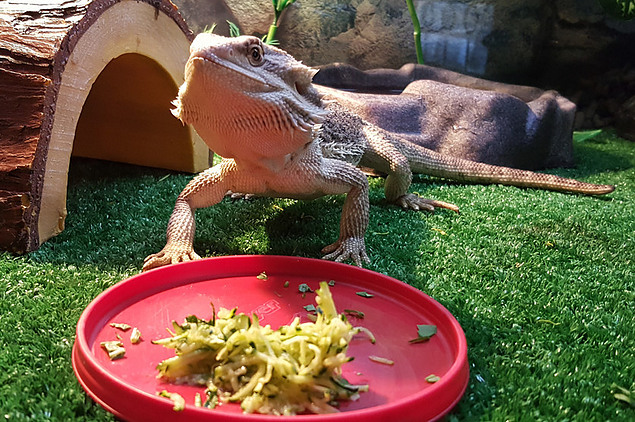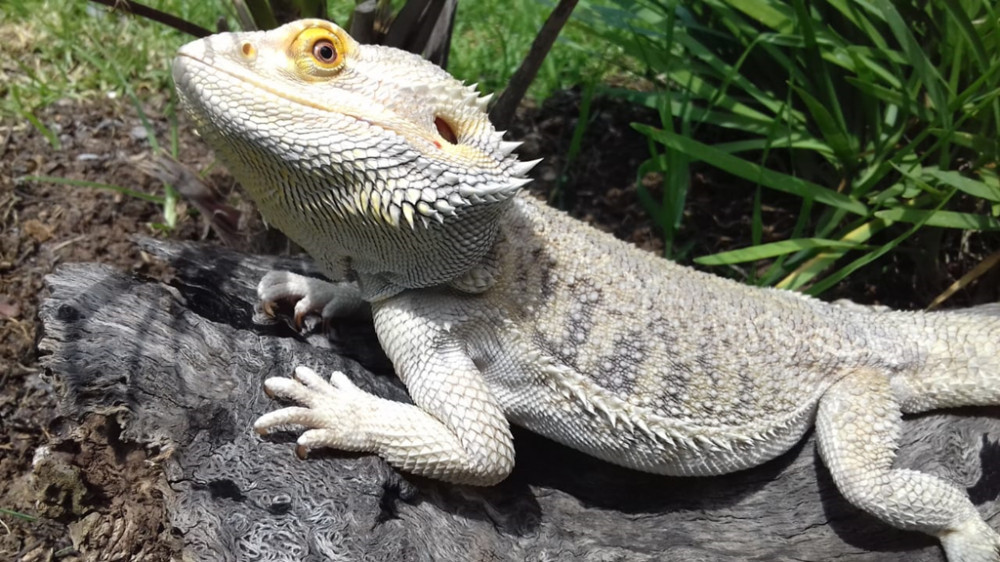A loss of appetite can be due to a wide variety of issues and the cause is usually hard to pinpoint exactly. One should go down the checklist and make sure that all the basics are covered, if nothing helps, an underlying illness can be the cause and veterinary care should be the next option.
Checklist:
Temperatures – Heat plays a very important part in the overall health of your bearded dragon. Without proper heat, your bearded dragon will not thrive well at all. They depend on heat for digesting their food and to gain energy. Check your temperatures to make sure they are in the proper range for the age of your bearded dragon.
UVB – Without a proper source of UVB radiation, again, your bearded dragon will not thrive well. Be sure to check that your UVB light is working properly and positioned at the right distance from your pet.
Stress – A stressed-out dragon will not eat. Stress can be caused by an introduction to a new environment or changes to the current environment. If you most recently got a beardie, it will take some time before he/she will calm down and get used to the new home. If appetite loss occurred after changes to the cage/terrarium, try reversing the changes. Beardies have personalities just like humans and some do not like any changes in their environment and thus will stress out.
Brumation – In wintertime, most bearded dragons will go into brumation (winter sleep) if the temperatures drop drastically. Before this happens, they will have a loss of appetite.

Not hungry – If your bearded dragon had a decent meal the previous day, there is a good chance that he will not be hungry the following day. Appetite loss is a concern after 3 days of not eating.
Health – Always do a health check-up to make sure, appetite loss is not a symptom or due to an illness.
Poop Schedule – If a Dragon has not pooped in a while, they will lose their appetite until they empty their stomachs. This can be a concern, as not pooping can lead to constipation or furthermore, Impaction.
Mating Season – Bearded dragons, especially males, may lose their appetites during the breeding season as they are more concerned about fighting rivals (Even non-existent ones) and finding a mate.
Pregnant – Some females will lose their appetite when getting near the end, as they become more concerned with finding the perfect place to burrow and lay their eggs. Once they have laid their eggs, they will have a massive appetite to make up for lost meals.
Diet – Some bearded dragons are peckish and will refuse to eat if a new food type is introduced, or if they get spoiled and only want treats.
Supplements – A lack of the correct supplements or the right dosage of supplements can sometimes lead to appetite loss. Appetite loss can also be a symptom of overdose.
Dehydration – Dehydration can cause appetite loss, but it is not a frequent cause.
Shedding – Shedding is a common cause of appetite loss, especially once the skin starts to loosen and come off. If the appetite does not return afterward, seek other causes.
